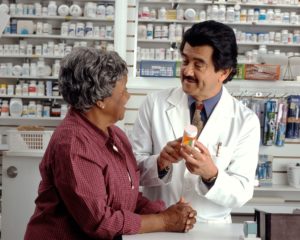HE SHOULD STILL BE WITH US
July 19, 2019 • community
School of Public Health & Texas Center for Health Disparities Community Blog
Something happened!!!!!
The sounds I awoke to coming from the living room were screams. I always had intense dreams, but I know this wasn’t one of them. I knew something bad had really happened. A few weeks earlier, my mom found out that “Uncle Joe” had been diagnosed with AIDS. This was devastating but not completely surprising because he had many health issues leading up to that moment.
…………The screams and now loud crying were coming from my mom who had just received news that he had died.
Whose fault was it?
We knew he had heart problems, but what we did not know was this was worsened by the fact that he had HIV. Thinking back now, this made sense. He had complained about chest pain and having trouble breathing. The doctors told us that he would still be alive if he had gone to the hospital sooner. But because he didn’t know he also had HIV, and didn’t seek proper treatment, his heart problems got worse faster. HIV experts know that HIV makes heart disease more severe and not respond as well to regular treatments. If his doctors had known he also had HIV, they might have done things differently.
Why knowing your status is important?
To say that this is an isolated incident would not be true. Stories like this unfortunately happen far too often. One of the reasons for this is people are afraid to get tested because of what others will think of them. The truth is we see this in North Texas nearly every day – people go the hospital only to find out they have AIDS. This should never be the case because we need to make sure people are tested way before the virus is in the last stages. HIV is a very deadly disease, but what’s even worse is not getting treatment because this could lead to even more deadly health problems.
Taking your health into your hands…….
For both patients and health care providers, the key to winning this new fight is a new model of thinking about treatment. A great example of this is medication therapy management (MTM). MTM uses the services of practitioners such as pharmacists. During MTM sessions pharmacists and persons with HIV sit down in a private setting and talk about not just HIV but all of what is important to the patient’s health.

What can talking to a pharmacist do?
The pharmacist’s role in MTM sessions is mostly to help the patient know more about their medicines and their health. The pharmacist educates and works with the patient and the patient’s doctor(s) to get the best result for the patient’s medicines. Another really great function of a pharmacist during MTM sessions is to talk about lifestyle changes (diet, exercise, etc.).
Why is a pharmacist a good resource?
Pharmacists are a good source of information about medications. They are also in the patient’s community already. No long travel is needed! As a result, patients’ can more quickly and easily be helped with any concerns about their medications that they may have. In addition, with the pharmacist working directly with the patient’s doctor, changes to medicines can be approved without any need for doctor’s appointment. This saves the patient time and money!
Everything is about the patient……
The patient should be at the center of every medical decision. This is why it is important that we make changes to the way we treat HIV/AIDs patients. The patient and their health needs should always be top priority. MTM therapy is a great option for the patient because it ensures the patient gets the best results in a short period of time.
Author:
Ryan Chishimba is a pharmacy student and is part of the graduating class of 2021 at UNTHSC. He is very passionate about public health issues and a very vocal member of the “humane” society. What motivates Ryan Chishimba is his faith, family, friends and nature. This is why helping people has become a second calling and why discovering his mission in life has been an immense superpower. His future plans include continuing to work to help and discover solutions in the treatment of chronic diseases.
Promoting Diversity in Research Training (PDRT) scholar
President of Christian Pharmacist Fellowship International (2019-2020)
Research reported in this publication was supported by the National Institute On Minority Health And Health Disparities of the National Institutes of Health under Award Number U54MD006882. The content is solely the responsibility of the authors and does not necessarily represent the official views of the National Institutes of Health.



Social media